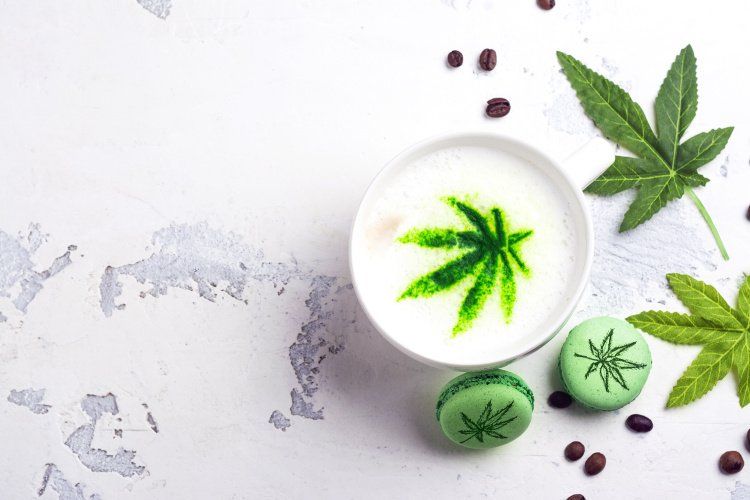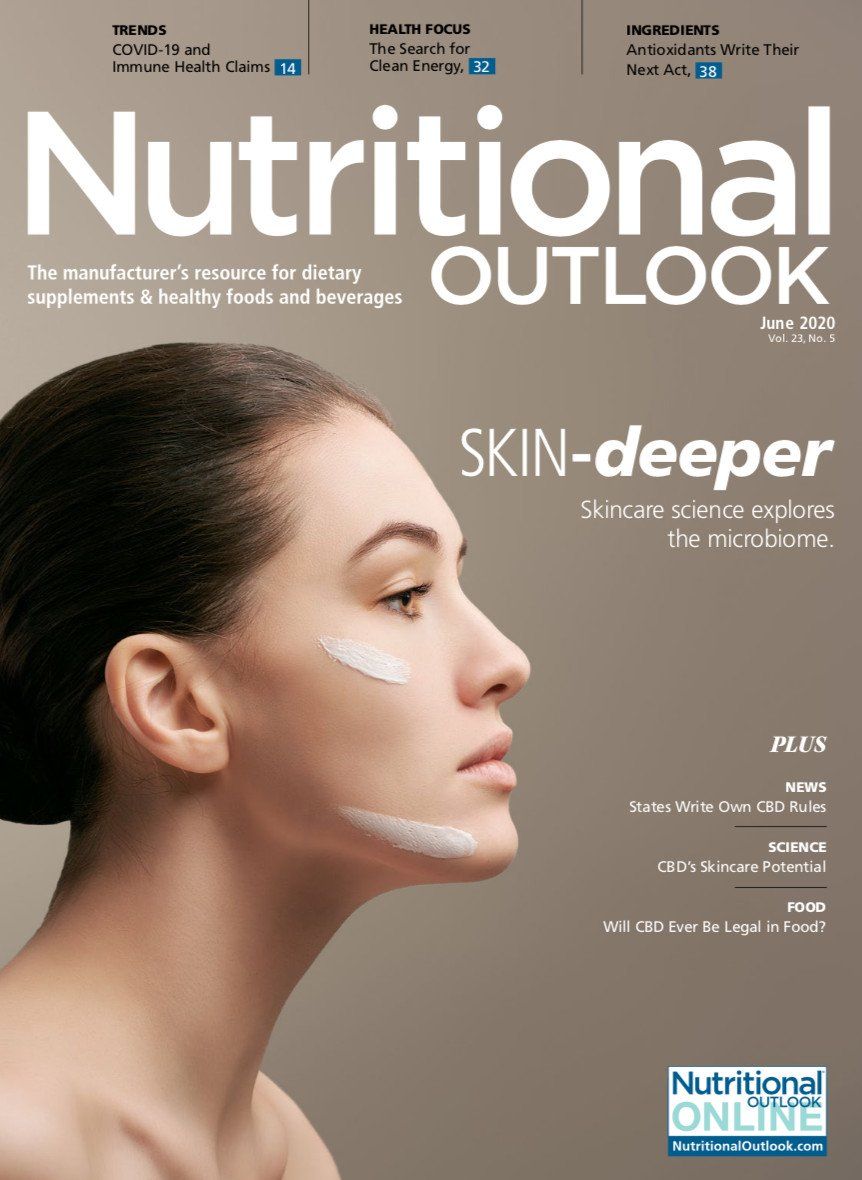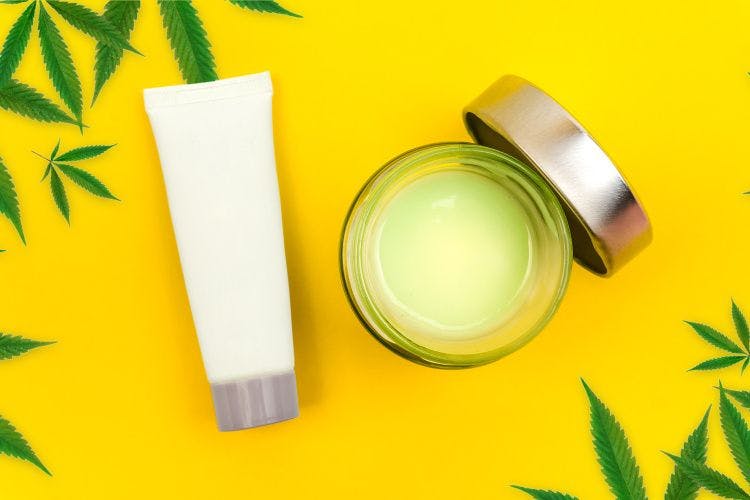High anxiety: Will CBD ever be legal in foods and beverages?
With FDA busy vetting coronavirus tests, therapeutics, and-one can hope-an eventual vaccine, will the agency have the bandwidth to develop a regulatory framework for permitting CBD’s use in foods and beverages?
Photo © AdobeStock.com/happy_lark

The COVID-19 pandemic, and society’s response to it, has strained every aspect of our lives, from our social connections and work routines to the public-health infrastructure and global supply chains. But it did help cannabis, at least at the start, says one market research firm, Headset, who noted sales gains for edibles and cannabis-containing beverages of 28% and 14%, respectively, as of April 2. Since then, other reports have emerged at industry events generally observing a potential leveling off of CBD product sales as the pandemic persists. Still, the fact remains that there is a sizeable group of customers interested in these products.
Of course, these discussions are happening notwithstanding the fact that it remains illegal, per FDA regulation, to introduce into interstate commerce foods or beverages that contain hemp-derived cannabidiol, or CBD, the non-psychoactive cannabinoid that’s become one of the buzziest health-and-wellness ingredients of the decade.
Which raises the question: With FDA busy vetting coronavirus tests, therapeutics, and-one can hope-an eventual vaccine, will the agency have the bandwidth to develop a regulatory framework for permitting CBD’s use in foods and beverages? And if the answer is no, what does that mean for FDA enforcement, the sector’s future, and-most crucially-consumer safety?
Under Investigation
Those questions remain as unsettled as they were in December 2018, when President Donald Trump signed into law the 2018 Farm Bill.
For while that bill legalized industrial hemp-provided it contain less than 0.3% tetrahydrocannabinol (THC) content-and removed it from Schedule I of the Controlled Substances Act, it did not set out a legal pathway for formulating foods, beverages, or dietary supplements to include hemp-derived CBD.
Thus, says Marc Ullman, of counsel, Rivkin Radler LLP (Uniondale, NY), “FDA’s position remains the same as it’s been since day one: CBD is not a lawful ingredient in foods or dietary supplements.”
The agency arrives at this position via a plain reading of the provisions of the Federal Food, Drug, and Cosmetic Act (FD&C Act) prohibiting the use of an approved drug or investigational new drug (IND) that’s been the subject of “substantial clinical investigations”-which is precisely what pharmaceutical-grade CBD isolate was in the research that GW Pharmaceuticals conducted on its groundbreaking anti-seizure drug Epidiolex, which remains the first and only CBD product to enjoy FDA approval.
In other words, the FD&C Act stipulates that if a party makes the effort to investigate a substance’s potential as a drug-as GW Pharma did with CBD-that party essentially gets “first dibs” on the substance’s commercial use, and that its subsequent appearance as a garden-variety dietary ingredient in foods, drinks, or supplements is outside the law.
Room to Maneuver
Unless, that is, “FDA exercises its power of enforcement discretion to allow it onto the market as a dietary ingredient,” says Megan Olsen, vice president and associate general counsel, Council for Responsible Nutrition (CRN; Washington, DC).
So: crystal-clear, right?
“What’s even less clear,” says Justin J. Prochnow, shareholder, Greenberg Traurig LLP (Denver), “is whether FDA’s prohibition applies specifically to CBD isolate”-the subject of GW Pharma’s investigations-or more widely to “anything with CBD in it, like full-spectrum or broad-spectrum hemp extract.”
His reading: “FDA’s been purposefully vague about this distinction.” While he views the agency’s approach as technically in accordance with the law, expanding that approach beyond a strict consideration of CBD isolate to cover all CBD-containing ingredients would be-“again, in my opinion”-an overextension.
“The law states that the article investigated is excluded,” he reiterates. “But does the investigation of CBD isolate extend to anything with CBD in it? I don’t think that’s the intention or spirit of the law.”
Too Hot or Too Cold?
For his part, Ullman sees FDA’s approach as “on one hand, overly legalistic, and on the other, dangerously lax.”
Evidence of excessive legalism lies in the agency’s plain-language interpretation that the FD&C Act prohibits CBD’s food and supplement use “with no apparent openness to any serious dialogue about alternate pathways to market,” he says.
Dangerous laxity arises in FDA’s refusal “to take action against any foods or supplements marketed as containing CBD in the absence of unapproved new drug claims,” he says-this despite the agency’s “serious concerns about the lack of any adequate regulatory filings for the GRAS [Generally Recognized as Safe] use of CBD in food, or as a new dietary ingredient [NDI] for use in supplements.”
Fair Warning
Prochnow, too, sees gaps in FDA’s enforcement. “It certainly hasn’t been proactive,” he notes. “It’s been very reactive, and it’s only taken action in the form of warning letters to companies that have painted FDA into a corner by making egregious disease claims. It still seems that FDA doesn’t really know what to do.”
Of the batch of warnings that FDA dropped in November 2019, for example, several took aim at companies promoting gummies as foods or claiming that their products “treat” inflammation, diabetes, and other conditions, Prochnow notes.
And now that some CBD brands have even made treatment and prevention claims in the COVID-19 space, FDA’s had to lay the hammer down there, as well. Says Prochnow, “Out of 60-plus letters, only one didn’t take a company to task for egregious disease claims.” Let that be a lesson.
Food for Thought
Also aware of the wild claims out there, Olsen nevertheless views FDA’s treatment of the CBD question as in line with its treatment of other regulatory questions before it. “They’re a science-based organization,” she says, “and they’ve been very clear that their number-one mission, whatever ends up on the market, is to protect public health.”
Which is what makes the question of allowing CBD in foods and beverages so tricky-even more than in supplements. As Olsen points out, there are “nuanced differences” between CBD’s safety profile in foods and beverages and its profile in supplements.
Douglas “Duffy” MacKay, ND, senior vice president of scientific and regulatory affairs, CV Sciences Inc. (San Diego, CA), agrees. Consider the scientific gaps in establishing CBD’s safety in children and during pregnancy. “This isn’t because CBD is known to be unsafe,” he explains, “but because there’s limited scientific information about its use in sensitive populations.”
Conventional food regulations don’t easily accommodate the labeling of, say, granola bars, candy, and soda as “Not for use during pregnancy and/or in children,” either, he continues. By contrast, “Dietary supplement labels can clearly say, ‘Not for use in children under 18’ or ‘Do not use if pregnant.’”
And food- and beverage-manufacturing standards “aren’t set up” to deliver specific amounts of a biologically active substance like CBD per bite or serving, MacKay claims. Once again, supplements by regulation must supply a specific amount of an active per serving.
“Finally,” he says, “there’s no post-market adverse-event reporting for foods and beverages like there is for dietary supplements.” And that surveillance, he insists, “is important to herbal-product safety.”
No wonder CV Sciences predicted that FDA wouldn’t permit the food or beverage use of CBD. “In fact, we included this opinion in our public comments at the FDA public meeting on May 31, 2019,” MacKay notes. “Our observation has been that entrepreneurs have been so excited about CBD’s business potential that the scientific and regulatory facts and our opinions were largely dismissed.” In the meantime, CV Sciences is focusing on a path toward CBD’s use in supplements first.
Show Them the Data
It’s not as though companies like CV Sciences, or an association like CRN, for that matter, oppose an eventual road toward delivering CBD via foods and beverages. Rather, Olsen says, “We just think that FDA should tackle the easier issue-how to approach this in supplements-and understand that the food path might take longer.”
Either way, FDA says it needs more, and better, data before it can render a prudent decision.
Ullman can’t blame them. While ceding the ultimate analysis to the toxicologists, he says, “In my experience, there seems to be a lack of serious, published literature that could be used to support FDA’s effort to provide a pathway for moving, should it choose to do so.” Brands can better make their case, he believes, if they supply “serious, science-driven published data.”
FDA recently removed a hurdle to their doing so by allowing companies to protect proprietary data-and their investment in it-from the disclosures required by the normal NDI notification process. Now companies can submit data to the docket confidentially, Olsen says, and CRN is encouraging them to do so.
As far back as 2018, CV Sciences published preclinical toxicology studies on its food-fiber hemp CO2 extract to establish a GRAS intake level. “Now,” says MacKay, “as companies wake up to the reality of FDA regulation, we see more serious companies following our lead and publishing their own toxicology data.”
Hurry Up and Wait
Even so, they may have to hurry up and wait before FDA uses this data to inform its decision-making. As Ullman says, “The vast majority of the agency’s resources and scientific expertise are rightly focused on dealing with COVID-19. So, I would expect a slowing-even from FDA’s normal glacial speed-on this.”
Unfortunately, he continues, “Because FDA’s taken the position that CBD cannot legally be an ingredient in food or supplements, it has created a situation where it’s unable to conduct any real regulatory inspections of companies producing these products. Failure to have adequate quality or GMP programs in place is potentially a serious vulnerability to a large segment of the trade.”
The agency has already expressed concerns about the category’s heavy-metals content, Olsen notes; but if they were enforcing inspection regulations-that is, if they’d spelled out a legal route to market-they could handle such concerns with CBD just as they do with any dietary ingredients. “It’s another botanical,” Olsen says. “Companies know how to deal with heavy metals in botanicals and put into place appropriate good manufacturing processes. It harms consumers the longer they let this market linger without any effective oversight.”
Ultimately, Olsen concedes, “We respect that this is a challenging question that they’ve never confronted.” But the progress that advocates had made before the COVID-19 crisis is worth sustaining. “As the country hopefully begins to return to normal over the next few months,” she says, “we can build on that progress, maybe even as early as the fall. Because this needs to be solved, sooner rather than later.”
Also read: Is 2020 the year FDA will finally make CBD a legal ingredient in dietary supplements and food?

Prinova acquires Aplinova to further increase its footprint in Latin America
April 7th 2025Prinova has recently announced the acquisition of Brazilian ingredients distributor Aplinova, which is a provider of specialty ingredients for a range of market segments that include food, beverage, supplements, and personal care.




















